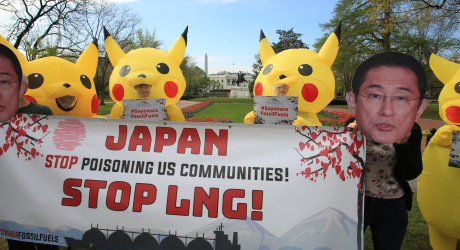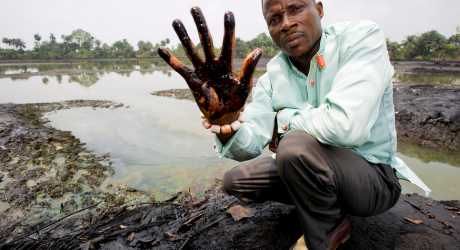GLOBAL POLICY
The Paris climate goals demand a rapid, just transition from fossil fuels to clean energy. We’re pushing governments to lead the way by adopting policies to end oil and gas production.
OVERVIEW OF WORK
In order to achieve climate goals, governments and other decision makers must support a just and equitable move away from fossil fuels. We are pushing for precedent-setting leadership from governments to put policies in place to manage the decline of oil and gas and ensure a just transition for fossil-fuel dependent workers and communities.
Building from a growing group of first mover governments, we are pressuring for increasing numbers of national and regional governments to end new licenses and permits for oil and gas production, and to develop plans to wind down their existing production over time.
LATEST PROGRAM POSTS
Japan is continuing to drive the expansion of fossil fuels across Asia and is derailing the transition to renewable energy. This harms communities and ecosystems, undermines energy security, and worsens the climate crisis. The facts speak for themselves.
A letter delivered to U.S. President Biden from 560+ organizations around the world applauded Biden's decision to halt pending LNG export approvals and called on him to expand the pause to halt all permitting of new LNG infrastructure and export projects.
Last month, it was widely reported that another chapter in Shell’s dirty and disastrous eighty-seven-year operations in the Niger Delta was coming to an end, with the company selling its onshore business.
While Manchin and his industry allies spread tired old myths about America saving the world from Putin and Chinese coal plants, the reality is the energy transition is already moving away from gas faster than most people think. That action needs to focus on a phase-out of all fossil fuel exports and protections and reparations for the frontline communities.
LATEST PROGRAM RESEARCH
This report, Banking on Climate Chaos 2023, analyzes fossil fuel financing and policies from the world’s 60 largest commercial and investment banks. We reveal that fossil fuel financing from the world’s 60 largest banks has reached nearly USD $5.5 trillion in the seven years since the adoption of the Paris Agreement, with $673 billion in 2022 alone.
The new briefing provides preliminary energy finance data for 2022 and shows that not only investments in new fossil fuel infrastructure are incompatible with meeting climate goals, but also that they are not needed for energy security and development goals.
This briefing explains how Japan’s “Green Transformation (GX)” policy is a greenwashing exercise designed to benefit corporate interests and prolong the use of fossil fuels when renewable energy solutions are reliable, available, cleaner, and cheaper.




